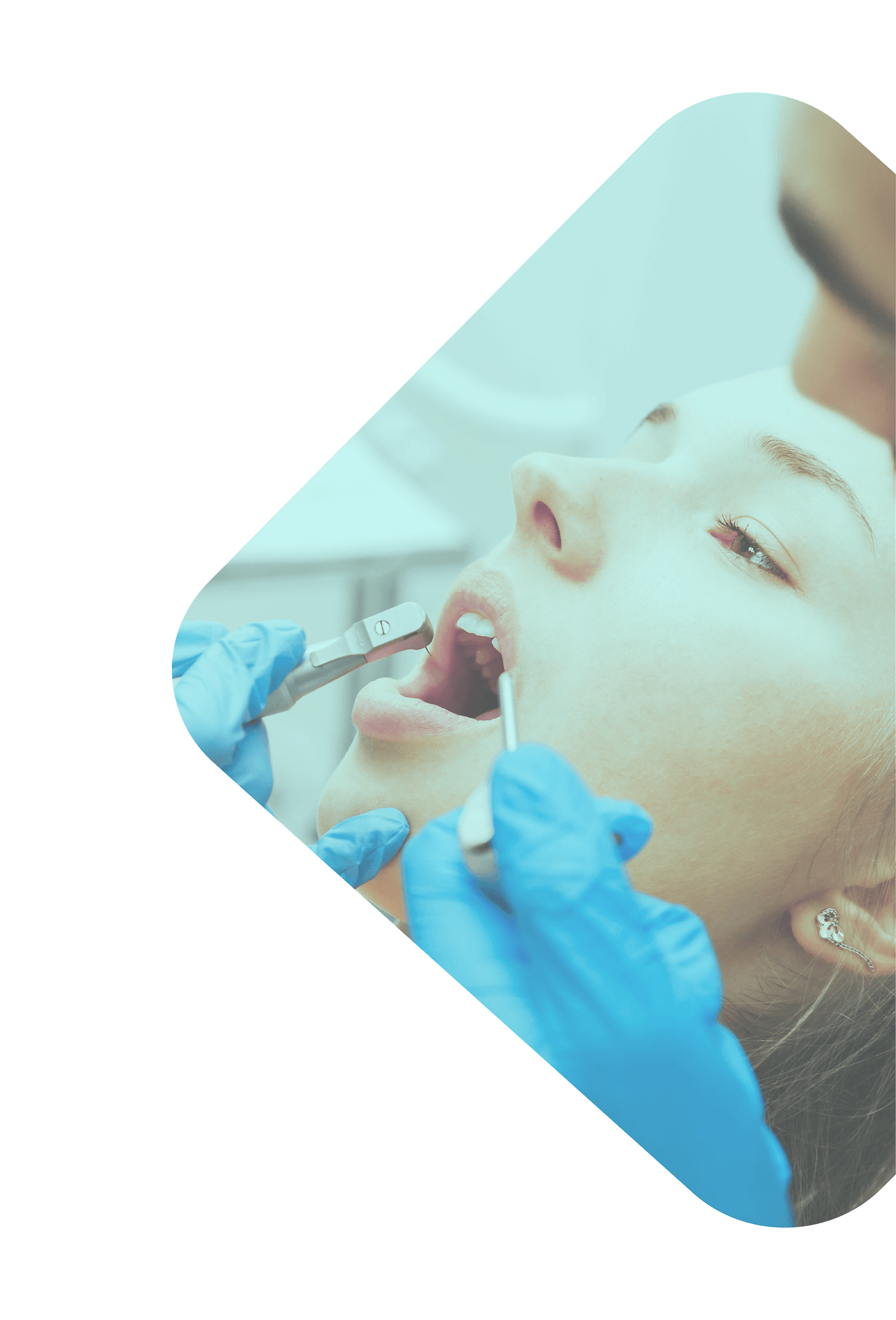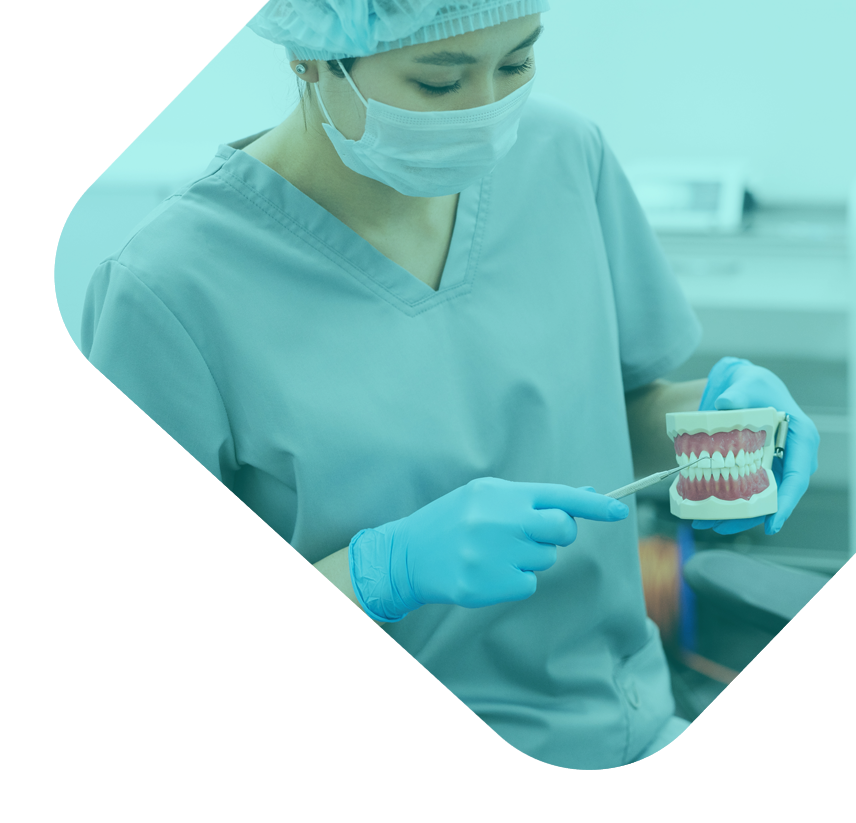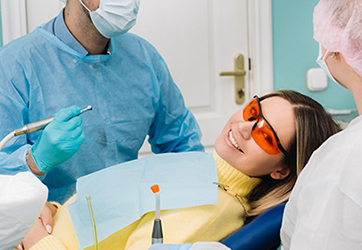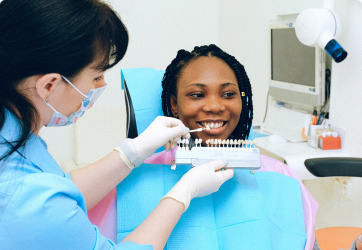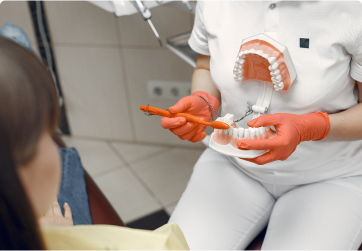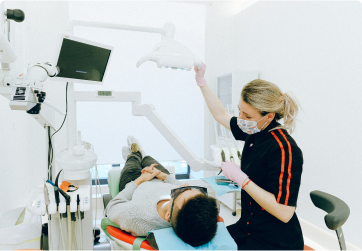
Complete Dentures
Complete dentures are ideal for patients without any natural teeth or who need all remaining natural teeth to be removed.
These dentures come in two categories: conventional full dentures and immediate full dentures. Conventional dentures are made over a few visits when the patient is already missing all of their natural teeth.
Immediate dentures or transitional dentures are fabricated when the remaining teeth in a patient’s mouth require extraction.
This denture is delivered the day the teeth are extracted and is a temporary denture during the four to six months following extractions when healing and reshaping of the gums occurs.
Partial Dentures
Partial dentures restore missing teeth in a patient’s arch when there are still natural teeth or implants to attach to. Partial dentures typically come with metal frames that dentists use to connect to your existing natural teeth.
These dentures fill in the spaces left after removing the natural teeth. They also help prevent the adjacent teeth from shifting and are the removable alternative to dental bridges.
What Are The Reasons For Having Dentures?
Not everyone should get dentures, we recommend that you seek dental advice from you before going through the procedure. Your dentist will help you determine the best alternative treatment for your underlying dental condition if they do not prescribe dentures.
Below are some of the reasons why you may need denture;
- When you lose all of your teeth in the arch, you can have a full/complete denture
- When you are missing some or several of your teeth, you can have a partial denture
- When you want to improve and enhance your smile and appearance
- When you want to improve chewing, biting, and speech


What Does Getting Dentures Involve?
Denture development procedure takes a few weeks of several appointments with your dentist or prosthodontics (a dentist specializing in restoration and teeth replacement). During these appointments, the dentist will determine the best appliances for you.
In the first step, the dentist will make a series of impressions of your jaw. He/she will take measurements to determine how each jaw relates to the other and the sizes of the gaps between the teeth.
They will create models, wax forms, and plastic patterns that resemble the denture’s shape and position they want to make for you. The doctor will try the model in your mouth several times before he finds the best fit. He/she will then work on finding the best color, shape, and fit before casting the final denture.
When they finally have the final denture, the dentist will make final adjustments as he deems fit to give you a perfect dental formula.
How to Cope With New Dentures
The new installations will feel a little odd and loose for the first few weeks until your cheek muscles and tongue get used to them. With time and continued practice, you will begin to feel comfortable removing and inserting them back.
Another probable scenario with new dentures is that you will feel occasional soreness, irritations, increased saliva flow, and possible speech and chewing difficulty. However, they too will diminish with time.
Your dentist will give you detailed care instructions for your new dentures. To emphasize that, we also recommend good oral hygiene and regular dental check-ups to assess the development.
Denture Adhesives Safety
Denture adhesives are safe as long as your dentist follows the right procedure and fits them well. They only add stability to the denture and should not have any side effects whatsoever.
However, these adhesives can be harmful to the underlying soft and hard tissues when used excessively and on an ill-fitted denture. In such cases, you will experience inflammation of the soft tissues and, to some extent, may cause bone loss.
